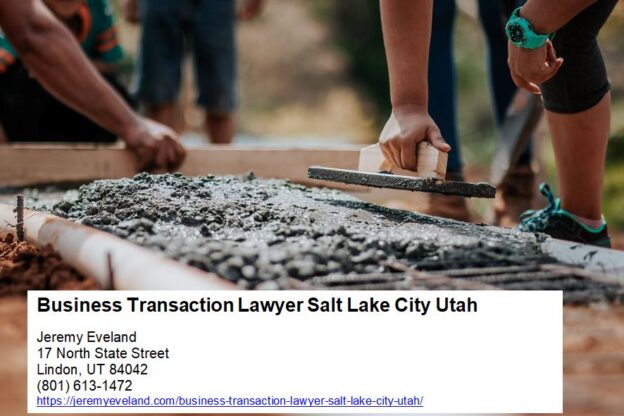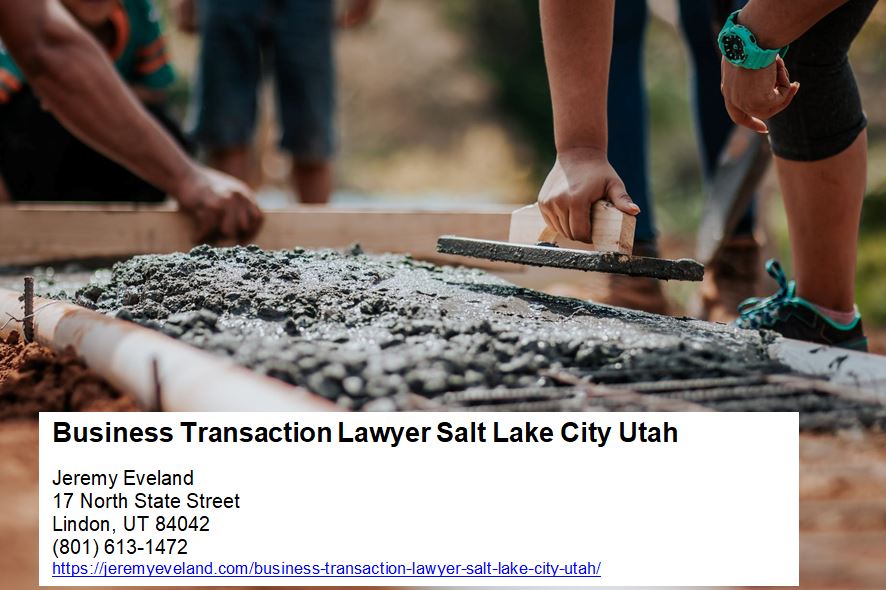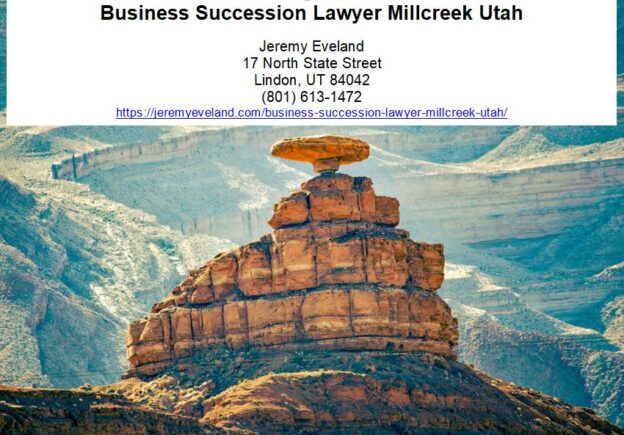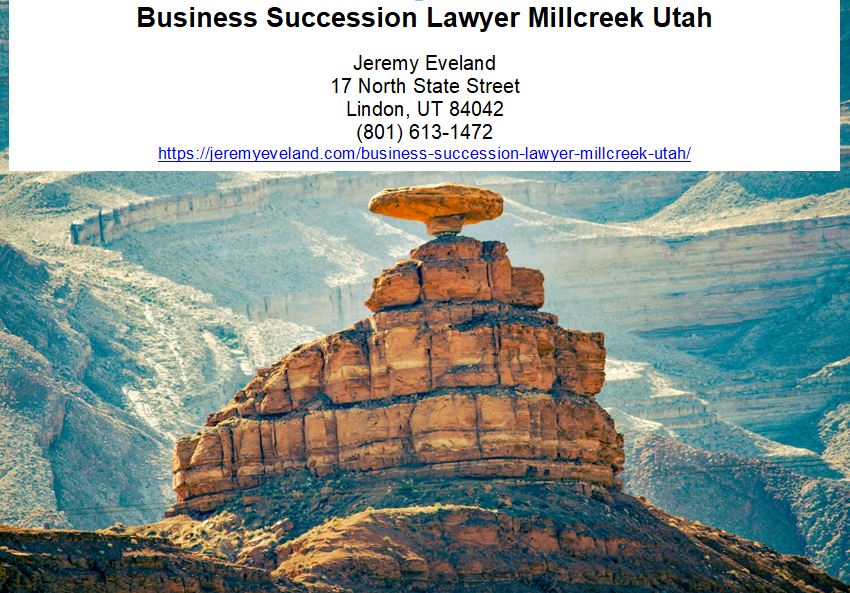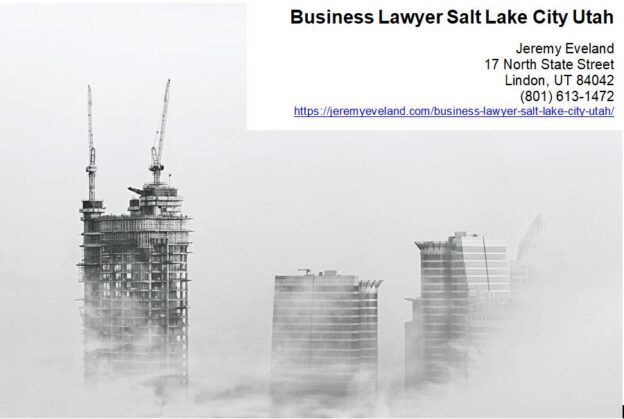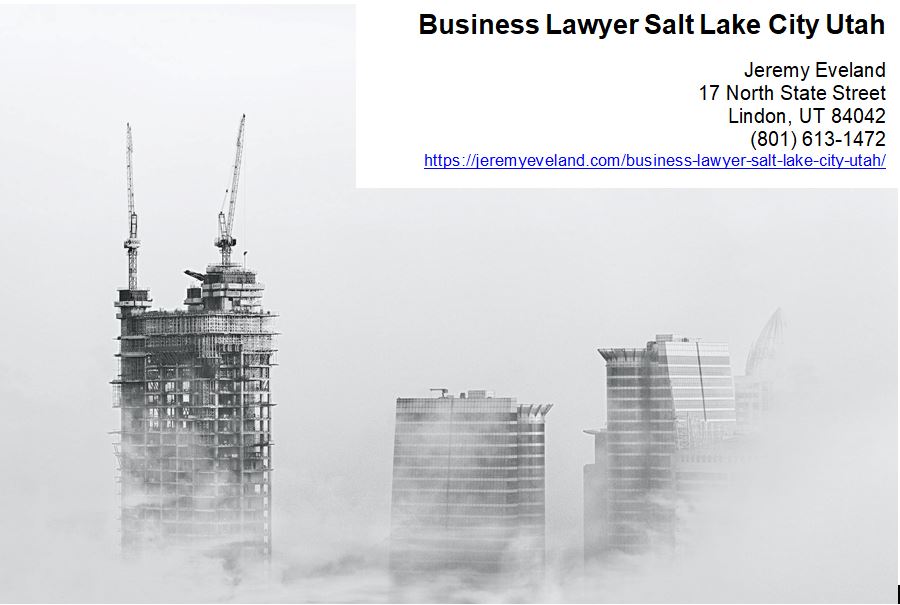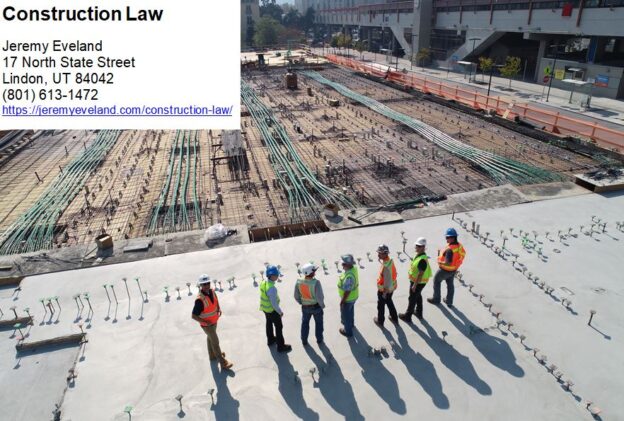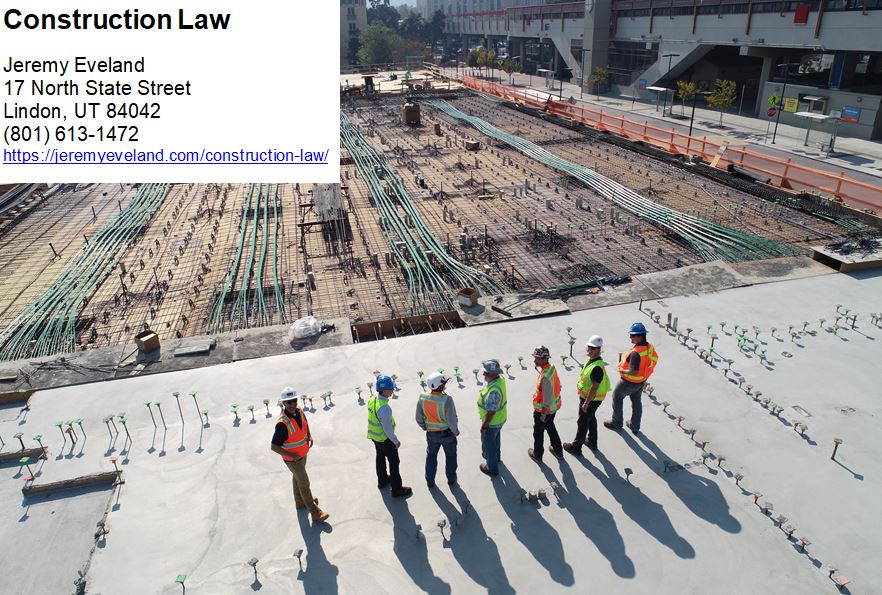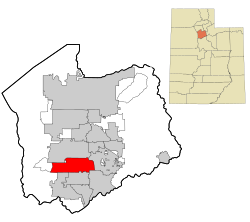Business Transaction Lawyer Salt Lake City Utah
A business transaction lawyer is a legal professional who provides advice and guidance to businesses on a variety of matters related to transactions. This includes everything from contract negotiations to compliance with local, state, and federal laws and regulations. This is a part of transactional law. Business transaction lawyers are responsible for ensuring that the business is compliant with applicable laws and regulations and that the company’s contracts are legally binding. They also advise clients on the best practices for negotiating, drafting, and implementing contracts. Additionally, business transaction lawyers are responsible for ensuring that the business is in compliance with all applicable tax laws and regulations.
Business transaction lawyers are also responsible for providing legal advice and counsel to businesses during the acquisition and sale of assets, mergers, reorganizations, and other corporate transactions. This includes advising on the terms and conditions of the transaction, conducting due diligence, and negotiating and drafting any necessary documents. This is very important in construction law. Additionally, business transaction lawyers must be knowledgeable about the laws and regulations that apply to the specific industry and the geographic region in which the business operates.
Business transaction lawyers assist businesses in a variety of other areas as well. These include providing advice on labor and employment laws, antitrust laws, environmental laws, intellectual property laws, and other legal issues. They also provide advice on corporate governance, corporate restructuring, and other matters for clients which consist of partnerships, LLCs, corporations, sole proprietorships, etc.
Are Business Transaction Lawyers in Demand?
If you’re one of the people who often ask this question, then this will definitely benefit you also if you want to be a lawyer. Corporate Law is a popular choice since it offers many opportunities. This is the corporate period. In recent decades, the company’s corporate industry has seen phenomenal expansion. Consequently, many new job paths have opened up for individuals, making business law famous.
The overall demand for business lawyers has gradually increased over the years and this is due to the fact that they ensure the legality of different activities going on within a business. A company cannot really survive without a business lawyer’s help, and that is why they are always high in demand in almost any and all sectors of business. Business lawyers are individuals who are organized and well aware of the needs of their clients.
A business lawyer should also be tech-savvy, a good negotiator with excellent communication skills, and a deal makers in today’s world. Moreover, a business lawyer should also be well-aware of the recent trends going on within the world and coming up with strategic plans is also a part of their job to succeed.
In December 2015 the Bureau of Labor Statistics (BLS) predicted that, ‘Competition for jobs should continue to be strong because more students are graduating from law schools each year than there are jobs available out there. The growth in population and general business activity is creating more legal transactions and generating increased need for legal services in a wide range of areas including health care, environmental issues, intellectual property, mediation, and antitrust. Countering this demand, however, is the capacity of large accounting firms and paralegals to perform some of the same functions as lawyers. As a result, lawyers are increasingly finding work in less traditional roles for which legal expertise is valuable, though not typically required. These roles include managerial, business, and administrative positions with banks; insurance and real estate companies; and government agencies. The majority of these opportunities are with larger firms in urban areas where corporations tend to centralize their operations. It’s not as simple as changing your practice area once your career has been established. If you’re starting your own law firm straight out of law school you’ll need to choose your practice area. Believe it or not, this is an incredible opportunity. You get the chance to chart the course of your career. The number of self-employed lawyers is expected to grow slowly, due to both competition from established firms and the costs associated with sustaining an independent legal practice.
Lawyers wishing to work independently should look to the less competitive legal markets of smaller towns and suburban areas. Some graduates may jumpstart their careers by joining legal staffing firms which place lawyers in short-term jobs. Willingness to relocate and take another state’s bar exam, as well as experience in specialty areas such as tax, patent, immigration, or copyright will improve law school graduates’ employment prospects. Law firms experienced rate and demand increases in 2021 at levels not seen in over a decade, but should moderate their expectations somewhat for coming years.
Lawyer rates grew 6.5% and demand increased 6.6%, in the first three quarters of the year over 2020, according to Citi Private Bank Law Firm Group and Hildebrandt Consulting’s latest annual client advisory. The report said the leap in rates and demand is still akin to pre-2007 increases for law firms, even when measured against 2019, before COVID-19 first hit the economy Average revenue grew 14.7% in the first nine months of 2021 over the same period of 2020, the advisory said. While firms saw higher demand and revenue, the delay in returning to the office meant that many didn’t face as much pressure from operating expenses, according to the report.
Growth in demand for law firm work hit highs in 2021 and the demand grew by 6.6% in the first nine months of 2021 over the same time span last year, while firms saw higher demand and revenue, the delay in returning to the office meant that many didn’t face as much pressure from operating expenses, according to the report.
Law firms pushed off plans to more fully reopen offices across the country this year as the pandemic continued and the expected operating expense increase as lawyers go back to work in-person will “put pressure on margins” and “make the whole focus on revenue growth an imperative”. That will make firms home in on getting more work and making sure they are collecting. Firms will likely see “softer growth results,” next year than they did in 202. While operating expenses only ticked up by 3% in the first nine months of the year, compensation expenses grew 14%, according to reports.
Firms have been battling for talent to handle the demand growth, particularly in transactional practices. They’ve used tactics like hiking pay and handing out extra bonuses to recruit and retain associates. Another “huge challenge” firm’s face is how to develop and retain their valuable associates in a hybrid work model, the advisory said. Many firms plan to have their lawyers combine in-person and remote work in 2023 and beyond.
What Do Business Lawyers Do?
Business lawyers are in charge of completing various tasks within a business which may include drafting contracts be it for employees, vendors, or customers. They must follow the law and moreover, they also protect you and your business intellectual property, such as inventions, logos, trade secrets, and more. Business lawyers also handle leases as well as agreements. They make sure to draft stuff in a manner that follows the law. All in all, business lawyers work in a favorable way for their clients.
With that being said, there’s still a way for small business owners to access some legal forms they might need in different stages of their business. Services like Stand with Main Street, for instance, offer a wealth of documents that both clients and lawyers find useful. You can find a bunch of files like confidentiality agreements, contracts, DBA registration, stock certificates, and more, but still, if you think you need personalized consultations and additional services, then a business lawyer would be a valuable asset to you. A business lawyer needs to research different aspects of a business and make sure it follows the law. If it doesn’t, then it could cause disasters for a business resulting in its downfall.
Yes. According to the Economic Report 2021-2022, the number of new enterprises produced increased by 80% in 2020, placing America first in new company creation. 4.35 million Requests to start a new company were made in the United States, while 1, 13,000 new enterprises were established in the United Kingdom alone in 2022. A qualified corporate lawyer is required for every new firm that enters the market due to the legal assistance necessary throughout the business’s lifespan. Lawyers are involved in every significant business transaction and will soon have a place at the table. Lawyers not only cure corporate issues but also prevent them. As a result, lawyers’ reliance is relatively high, and they are continuously on the lookout for professionals in this sector.
Additionally, because of all the legal assistance required, corporate attorneys are viewed nearly as partners in the firm and are handsomely compensated. A firm’s lawyer gets required throughout the lifetime of any significant decision. As a result, trust is strong, and businesses are constantly searching for qualified lawyers to assist them. Lawyers are both issue solvers, crisis stoppers and crisis preventers. Many individuals choose to work as business attorneys because of the great need for their services. Furthermore, corporate law gets regarded as one of the most rewarding professions for the reasons listed: Your financial situation
Corporate law is for you and your business if you want to earn a lot of money. Lawyers get compensated generously based on their expertise and knowledge in the field. The longer you stay on the pitch, the higher your market worth. You may bargain your way to a highly lucrative job because there is a need. A corporate lawyer receives a fee based on their work transactions and the baseline compensation.
Why Are Good Business Transaction Attorneys High In Demand?
Business lawyers are high in demand for several reasons. The state of Utah and the United States is based on a capitalistic environment where entrepreneurship, business, production, and innovation is constant and necessary. We live in an ever-growing world in which everyone wants to become the best wherever they are or find themselves. Many businesses are being formed that earn lots of bucks and successfully operate in the entire world and this cannot be possible without the help of a business lawyer. The more businesses are coming into the picture, the increase in demand for business lawyers.
Moreover, since there has been a massive setback for businesses due to the COVID-19 pandemic, businesses are now looking for ways to get back on their feet and stand firm. They went through a huge loss, and this is why they are hiring more corporate lawyers. Lawyers have recently stated that they are receiving more client calls as well as queries. They have increased by 25% compared to before and this goes for all small as well as large international businesses.
Business Transaction Lawyer Salt Lake City Utah Consultation
When you need legal help from a Business Transaction Lawyer in Salt Lake City Utah, call Jeremy D. Eveland, MBA, JD (801) 613-1472 for a consultation.
Jeremy Eveland
17 North State Street
Lindon UT 84042
(801) 613-1472
Recent Posts
The Utah Uniform Partnership Act
The 10 Essential Elements of Business Succession Planning
Business Succession Lawyer Salt Lake City Utah
Business Succession Lawyer West Jordan Utah
Business Succession Lawyer St. George Utah
Business Succession Lawyer West Valley City Utah
Business Succession Lawyer Provo Utah
Business Succession Lawyer Sandy Utah
Business Succession Lawyer Orem Utah
Business Succession Lawyer Ogden Utah
Business Succession Lawyer Layton Utah
Business Succession Lawyer South Jordan Utah
Business Succession Lawyer Lehi Utah
Business Succession Lawyer Millcreek Utah
Business Lawyer Salt Lake City Utah
Business Transaction Lawyer Salt Lake City Utah
Salt Lake City
|
Salt Lake City, Utah
|
|
|---|---|
| City of Salt Lake City[1] | |

Clockwise from top: The skyline in July 2011, Utah State Capitol, TRAX, Union Pacific Depot, the Block U, the City-County Building, and the Salt Lake Temple
|
|
| Nickname:
“The Crossroads of the West”
|
|

Interactive map of Salt Lake City
|
|
| Coordinates: 40°45′39″N 111°53′28″WCoordinates: 40°45′39″N 111°53′28″W | |
| Country | |
| State | Utah |
| County | Salt Lake |
| Platted | 1857[2] |
| Named for | Great Salt Lake |
| Government
|
|
| • Type | Strong Mayor–council |
| • Mayor | Erin Mendenhall (D) |
| Area | |
| • City | 110.81 sq mi (286.99 km2) |
| • Land | 110.34 sq mi (285.77 km2) |
| • Water | 0.47 sq mi (1.22 km2) |
| Elevation
|
4,327 ft (1,288 m) |
| Population | |
| • City | 200,133 |
| • Rank | 122nd in the United States 1st in Utah |
| • Density | 1,797.52/sq mi (701.84/km2) |
| • Urban
|
1,021,243 (US: 42nd) |
| • Metro
|
1,257,936 (US: 47th) |
| • CSA
|
2,606,548 (US: 22nd) |
| Demonym | Salt Laker[5] |
| Time zone | UTC−7 (Mountain) |
| • Summer (DST) | UTC−6 |
| ZIP Codes | |
| Area codes | 801, 385 |
| FIPS code | 49-67000[7] |
| GNIS feature ID | 1454997[8] |
| Major airport | Salt Lake City International Airport |
| Website | Salt Lake City Government |
Salt Lake City (often shortened to Salt Lake and abbreviated as SLC) is the capital and most populous city of Utah, as well as the seat of Salt Lake County, the most populous county in Utah. With a population of 200,133 in 2020,[10] the city is the core of the Salt Lake City metropolitan area, which had a population of 1,257,936 at the 2020 census. Salt Lake City is further situated within a larger metropolis known as the Salt Lake City–Ogden–Provo Combined Statistical Area, a corridor of contiguous urban and suburban development stretched along a 120-mile (190 km) segment of the Wasatch Front, comprising a population of 2,606,548 (as of 2018 estimates),[11] making it the 22nd largest in the nation. It is also the central core of the larger of only two major urban areas located within the Great Basin (the other being Reno, Nevada).
Salt Lake City was founded July 24, 1847, by early pioneer settlers, led by Brigham Young, who were seeking to escape persecution they had experienced while living farther east. The Mormon pioneers, as they would come to be known, entered a semi-arid valley and immediately began planning and building an extensive irrigation network which could feed the population and foster future growth. Salt Lake City’s street grid system is based on a standard compass grid plan, with the southeast corner of Temple Square (the area containing the Salt Lake Temple in downtown Salt Lake City) serving as the origin of the Salt Lake meridian. Owing to its proximity to the Great Salt Lake, the city was originally named Great Salt Lake City. In 1868, the word “Great” was dropped from the city’s name.[12]
Immigration of international members of The Church of Jesus Christ of Latter-day Saints, mining booms, and the construction of the first transcontinental railroad initially brought economic growth, and the city was nicknamed “The Crossroads of the West”. It was traversed by the Lincoln Highway, the first transcontinental highway, in 1913. Two major cross-country freeways, I-15 and I-80, now intersect in the city. The city also has a belt route, I-215.
Salt Lake City has developed a strong tourist industry based primarily on skiing and outdoor recreation. It hosted the 2002 Winter Olympics. It is known for its politically progressive and diverse culture, which stands at contrast with the rest of the state’s conservative leanings.[13] It is home to a significant LGBT community and hosts the annual Utah Pride Festival.[14] It is the industrial banking center of the United States.[15] Salt Lake City and the surrounding area are also the location of several institutions of higher education including the state’s flagship research school, the University of Utah. Sustained drought in Utah has more recently strained Salt Lake City’s water security and caused the Great Salt Lake level drop to record low levels,[16][17] and impacting the state’s economy, of which the Wasatch Front area anchored by Salt Lake City constitutes 80%.[18]
[geocentric_weather id=”79414f66-9f4c-4a1a-9eaa-8bbae65c0683″]
[geocentric_about id=”79414f66-9f4c-4a1a-9eaa-8bbae65c0683″]
[geocentric_neighborhoods id=”79414f66-9f4c-4a1a-9eaa-8bbae65c0683″]
[geocentric_thingstodo id=”79414f66-9f4c-4a1a-9eaa-8bbae65c0683″]
[geocentric_busstops id=”79414f66-9f4c-4a1a-9eaa-8bbae65c0683″]
[geocentric_mapembed id=”79414f66-9f4c-4a1a-9eaa-8bbae65c0683″]
[geocentric_drivingdirections id=”79414f66-9f4c-4a1a-9eaa-8bbae65c0683″]
[geocentric_reviews id=”79414f66-9f4c-4a1a-9eaa-8bbae65c0683″]
